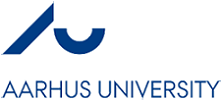Molecular Biology

Winter intake start date
2026-02-01
Winter intake deadline
2024-10-10
Introduction
The MSc in Molecular Biology programme is both practical and research-oriented, reflecting the interests of business and industry, research institutions and the public sector. This flexible programme accommodates the interests of the individual student, because it allows you to specialise in a particular subject area while acquiring a general mastery of in molecular biology.
Specialisation
Students can choose to specialise within a more general field, including one of the five branches of molecular biology in which Aarhus University is particularly strong: molecular medicine, structural biology, systems biology, plant biology, and quantitative genetics.
The MSc in molecular biology programme counts as 120 ECTS credits. Students can tailor the study programme to fit their qualifications and interests. In the first year, students follow an individually planned course programme.
In the second year students write a thesis. There are excellent opportunities for collaboration with a group of researchers in connection with work on the thesis project. This gives students a chance to participate in the group’s research projects, academic discussions and articles.
World-class research
Teaching at the Department of Molecular Biology and Genetics is greatly influenced by the research conducted here, as the lecturers are active researchers. Students gain insight into on-going research projects across the entire spectrum of molecular biology, from bacteria and yeast to humans. The understanding of biochemistry and molecular biology is based upon the entire spectrum, from atoms to organisms.
Na studia magisterskie mogą kandydować wszyscy, którzy ukończyli studia licencjackie lub inżynierskie (studia I stopnia), studia magisterskie lub studiują na ostatnim roku studiów I-stopnia. Studia, które planujesz powinny mieć zbliżony profil do tych obecnych lub ukończonych, ponieważ w procesie rekrutacji kluczowa jest ich zgodność programowa.
Wykaz punktów ECTS – osoby, które są jeszcze w trakcie studiów, muszą załączyć wypis punktów ECTS, w którym będzie wykazane, jakie przedmioty były realizowane na studiach oraz ile punktów za nie otrzymano.
Dyplom ukończenia studiów licencjackich lub inżynierskich – jeśli jesteś absolwentem wyższej uczelni, nie potrzebujesz wypisu, wystarczy załączyć dyplom ukończenia studiów wraz z suplementem (w języku angielskim lub oryginał z tłumaczeniem)
Course description - należy przygotować dokument, zbierający cały sylabus ze studiów licencjackich. Takie sylabusy najczęściej są do pobrania na stronie uniwersytetu. Należy je przetłumaczyć na język angielski (można samodzielnie) i złączyć w jeden dokument. Warto też zapytać w dziekanacie uczelni, czy nie dysponują wersją angielską.
Oficjalna skala oceniania Twojej uczelni - możesz dostać taki dokument w dziekanacie Twojej uczelni lub skonstruować samodzielnie. W obu przypadkach dokument powinien zawierać pieczątkę dziekanatu.
Spełnienie wymagań w zakresie języka angielskiego można udokumentować w jeden z następujących sposobów:
IELTS – 6.5
TOEFL – 83 (Aarhus University TOEFL kod - 8935)
Uwaga: wymagania językowe mogą ulec zmianie. Przed wysłaniem aplikacji upewnij się jakie są wymagania językowe na konkretny kierunek bezpośrednio na stronie uczelni.
W przypadku zdawania certyfikatu IELTs upewnij się, czy uczelnia oprócz wymagań oceny końcowej nie ma również wymagań odnośnie ocen cząstkowych.
You can be admitted to the master's programme if the university assesses that your education has a level, scope, and content that corresponds to the academic requirements specified below.
| Subject area | Number of ECTS |
| Subject components within molecular biology, biochemistry, genetics, microbiology and bioinformatics /programming including at least 10 ECTS practial laboratory work within molecular biology or molecular medicine | 80 |
| Basic subject components in Mathematics, Probability Calculus, Statistics and Chemistry | 30 |
| Total | 110 |
